Asphalt Driveway Maintenance – 7 Tips for Extending Lifespan
Asphalt driveway maintenance and care is crucial for prolonging the life of your pavement. Understanding the root causes of deterioration is key to effective, cost-efficient upkeep.
Effective asphalt driveway maintenance involves regular inspections and addressing issues like cracks and wear. Key practices include sealcoating, repairing cracks promptly, proper cleaning, and avoiding heavy loads. This proactive approach not only extends the driveway’s lifespan but also maintains its appearance and functionality, ensuring safety and cost-effective long-term care.
Discover the essential strategies for preserving your asphalt driveway, from routine maintenance to professional treatments, in our comprehensive guide.
7 Strategies To Maintain Your Asphalt Driveway

Here are the strategies that the Paving Finder team recommends you use:
1. Avoid Parking for Too Long
The first few weeks after getting your driveway paved is crucial; this period will decide how long your driveway will last. This is why; it’s advisable to ensure you do the needful. You can always drive into the driveway on the second day after your asphalt payment has been installed. Still, you must avoid parking for too long to protect your driveway from sinking in or the excessive pressure that will destroy the pavement.
2. Protect Your Driveway Payment from Spills or Gas
Gas or chemical spills pose a significant risk to maintaining your driveway’s integrity. These substances, due to their chemical compatibility, can cause the asphalt to soften and break down more quickly. To prevent such damage, it’s vital to prevent gas leakages and spills. Alternatively, using fuel-resistant asphalt offers a more robust solution, enhancing the protection and longevity of your driveway.
3. Fill up Cracks and Holes
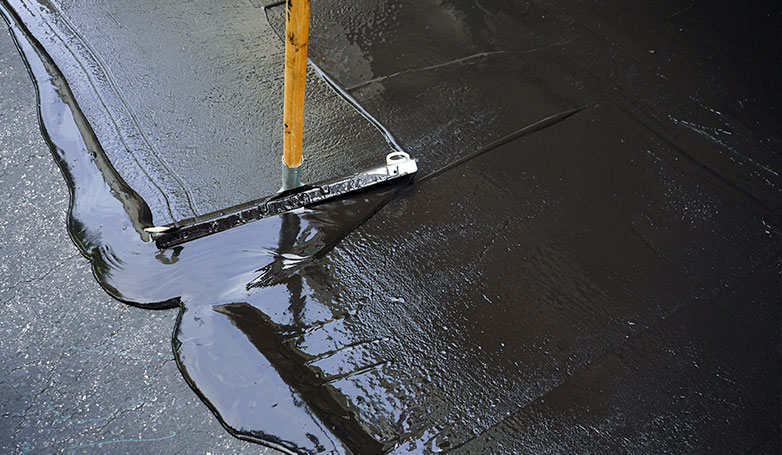
It’s common for cracks or holes to develop on driveways, especially if the maintenance has been delayed. However, when you start paying more attention to your driveway, you will need to fill up cracks and potholes to prevent it from widening. Also, cracks and potholes on your asphalt allow moisture to get through and cause further damage to the pavement.
4. Avoid Parking When It’s Too Hot
For your Asphalt paving to remain in good condition, you must avoid parking when the temperature is extremely hot. Since asphalt contracts and expands with temperature change, more cracks and potholes will form when the temperature increases.
5. Use High-quality Sealcoat
Asphalt driveway maintenance significantly benefits from sealing, as asphalt seal coats are essential in maintaining the integrity of your pavement for years. This unique and efficient process provides robust protection for your driveway against heavy rain, freezing temperatures, snow, and other severe weather conditions.
6. Prepare a Proper Drainage System
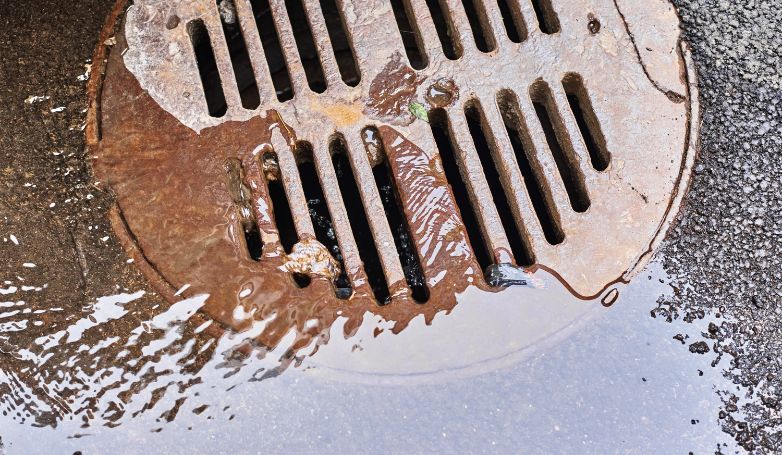
If you don’t already have a drainage system on your driveway, it’s time to plan for one. Water, in general, remains a great enemy of any asphalt pavement. Standing water, snow, or freeze will accumulate and penetrate your asphalt later. Construct a working drainage system to prevent your material from damaging and any potential financial crisis.
7. Protect Your Edges
Your asphalt edges matter. They are not as strong and protected as the main pavement. Protect them from cracks and damage by not driving or parking on them all the time.
Why Does Asphalt Driveway Need Maintenance?
Here are the most common reasons why the driveway needs maintenance
Weathering
Exposure to the elements, including harsh sunlight, rain, snow, and extreme temperature fluctuations, can significantly hasten the deterioration of asphalt. These environmental factors cause the material to lose its flexibility and resilience, making it more susceptible to damage.
Oxidation
Oxygen in the air reacts chemically with the asphalt binder, leading to oxidation. This process causes the material to become brittle and lose its pliability, resulting in a gradual breakdown of the surface material and diminishing its resistance to wear and tear.
Cracking
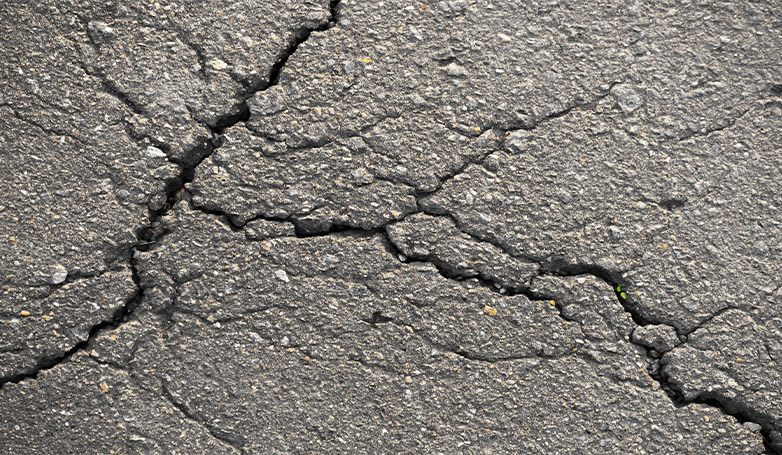
Asphalt driveway maintenance is crucial, especially since these driveways are particularly vulnerable to cracking caused by temperature changes and heavy loads. The frequent shifts between hot and cold temperatures make the asphalt expand and contract, resulting in cracks. Moreover, the weight of vehicles, especially heavier ones, significantly stresses the pavement, further exacerbating these cracks.
Water Damage
Water infiltration, a primary enemy of asphalt integrity, can occur through existing cracks or due to inadequate drainage. This moisture weakens the base layer, erodes the subgrade, and can create potholes and other structural issues, compromising the driveway’s stability and safety.
Chemical Exposure
Contact with substances like oil, gasoline, and other harsh chemicals can aggressively degrade the asphalt binder. These chemicals break down the essential components that hold the asphalt together, affecting the overall integrity and longevity of the pavement.
Heavy Loads
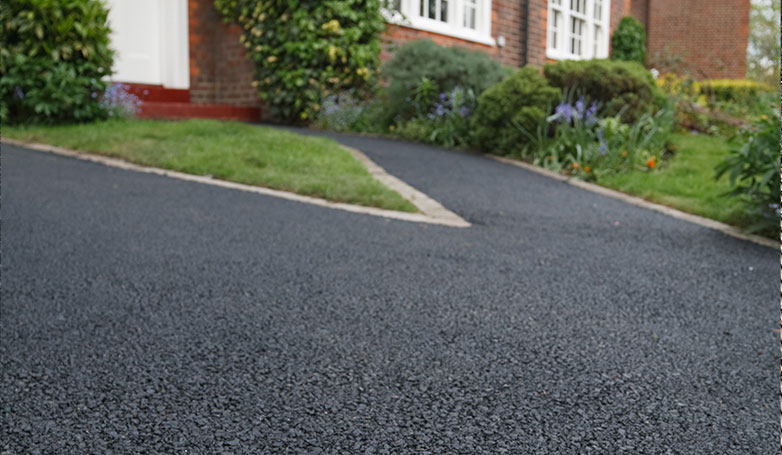
Continuous pressure from vehicles, particularly heavy ones, can lead to the asphalt compacting and deforming over time. This constant stress can create ruts and depressions in the surface, leading to uneven wear and potential hazards.
Vegetation Growth
Weeds and grass that grow through existing cracks can exacerbate the damage to your asphalt driveway. The roots of this vegetation can push the asphalt apart, widen the cracks, and retain moisture, further weakening the pavement structure.
Aging
Asphalt, like any material, undergoes a natural aging process. Over time, the effects of aging can be seen in the fading, stiffness, and brittleness of the driveway surface. Regular maintenance not only helps slow down these aging effects but also ensures the driveway remains functional and aesthetically pleasing for a longer period.
By addressing these factors through proper asphalt driveway maintenance, you can significantly prolong the life of your driveway and maintain it in good condition.
Read More: Asphalt Driveway Paint
New Asphalt Driveway Care
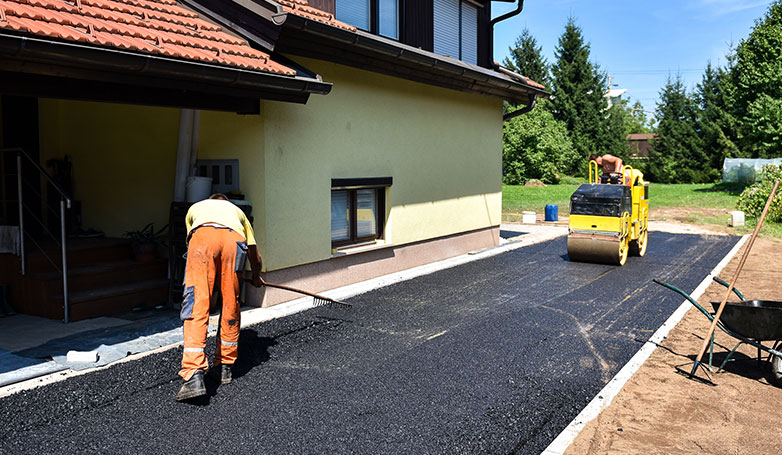
Asphalt is one of the most affordable methods of paving your driveway. It’s beautiful, easy to maintain, and, of course, it’s less vulnerable to cracking and damage when compared to concrete. With asphalt pavement, you don’t have to wait for too long to start using your driveway. However, to enjoy the best of your new asphalt driveway, you must keep up with regular upkeep and sealing. We have listed a few steps to help you get the best out of your new asphalt driveway.
Don’t drive on your new asphalt
Give your new driveway some time to dry and harden. It’s okay to walk into your driveway after a few days; after five days, you can drive in but avoid parking on it for too long. f
Keep excessive weight
To maintain and care for your driveway, you must reduce excess weight. Your new driveway just got installed and needs time to set in. Parking heavy trucks or boats will weaken the surface, creating cracks and, eventually, a big messy pothole.
Avoid driving on the edges
The edges of your driveway are the weakest and will easily crack due to a lack of support when applying pressure. Avoid driving on them, and you have long-lasting pavement.
Keep up with Sealcoat
Many asphalt driveway owners ask how long they must wait before sealing their payment. Six months is good enough to get your pavement sealed and protected from water, dust, and snow. If you decide to stay up to a year, you must remember that unprotected driveways are prone to damage.
Harden the surface
Asphalt pavements will contract during winter and expand when it’s too hot. Watering your driveway when the temperature is hot is okay to help harden the surface.
Recycled Asphalt Driveway Maintenance
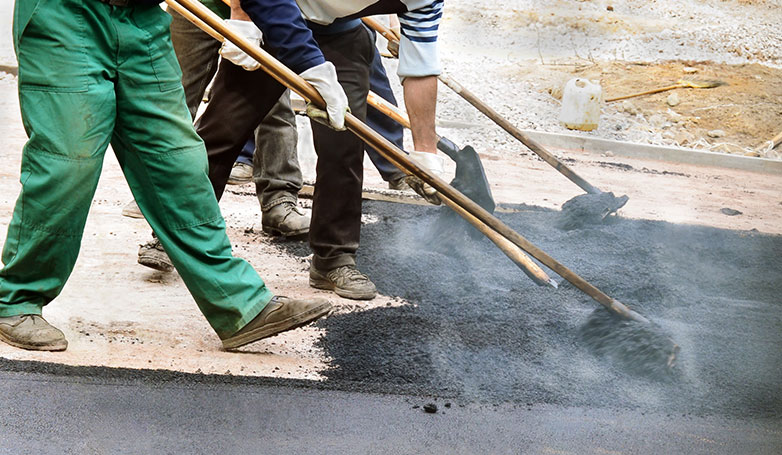
It might seem that recycled asphalt isn’t as robust as new material, but this isn’t the case. When properly cared for, it can remain in excellent condition for a long time. So, instead of tearing out your old, cracked, or damaged pavement to install new material, why not consider rejuvenating it with our effective maintenance steps? This way, you can extend the life of your existing pavement efficiently.
Clean the Surface
To maintain the integrity of a recycled asphalt driveway, start by thoroughly cleaning the surface. Use a high-quality power blower to remove all debris, dirt, and loose particles. Make certain that the surface is thoroughly dry before moving on to the subsequent steps. This step is crucial as it prepares the driveway for effective maintenance and repair procedures.
Fill up cracks and potholes
Cracks and potholes destroy our pavement and allow water to penetrate when allowed to stay for too long. When you find any cracks on your pavement surface, you will need to fill them up with hot or cold-pour crack fillers.
Seal coat your recycled asphalt
Many homeowners opt for an economical approach by evenly spreading recycled asphalt over the surface and smoothing it with a rake. Applying a seal coat afterwards is key to preserving and strengthening your pavement. However, before embarking on seal coating, it’s important to either be well-informed about the process or consider enlisting the help of a professional in asphalt repair to ensure the best results.
Asphalt Driveway Maintenance Cost
After completing all the activities to ensure adequate maintenance, sealing your asphalt pavement will protect it from sun, rain, damage, or gas and oil spill. Driveway seal coating can help you preserve and prolong the life of your driveway. Sealing can be costly depending on how many square feet you want to cover and the amount of sealing gallons needed. Including material and labor, asphalt pavement sealing costs about $1.21 to $1.53 per square foot.
The condition of your driveway has to be assessed before sealing; this is why it’s advisable to observe adequate maintenance and care. Compared to a damaged driveway that hasn’t been sealed in a long time, it will cost less money and effort to seal a driveway in good condition.
FAQs about Asphalt Driveway Maintenance

How Long Can an Asphalt Driveway Last?
Depending on the quality of the installation, Asphalt driveways can last a long time. Asphalt parking lots or driveways can last up to 20 years but will require regular sealing for proper maintenance. When asphalt pavement is done well, it will feel like a concrete driveway.
How often should you seal asphalt driveway?
It’s recommended to seal an asphalt driveway every 2-3 years. However, this can vary based on the driveway’s exposure to heavy traffic, harsh weather conditions, and the quality of the previous sealcoating job.
Is asphalt hard to maintain?
Asphalt is relatively easy to maintain compared to other materials. Regular cleaning, prompt repair of cracks and holes, and periodic sealcoating are the key maintenance activities. Being vigilant about these can significantly extend the life and appearance of your driveway.
How do I protect my new asphalt driveway?
To protect your new asphalt driveway, avoid heavy loads and sharp objects that can cause indentation and damage. During the first 6-12 months, be cautious of parking in the same spot repeatedly. Apply a quality sealcoat after the driveway has fully cured, usually 6-12 months after installation.
What is bad for asphalt driveway?
Chemical spills, such as oil, gasoline, and deicing agents, can deteriorate the asphalt. Water penetration due to cracks and inadequate drainage is also harmful. Additionally, parking heavy vehicles for extended periods and using studded tires can damage the surface.
Is it OK to pressure wash asphalt driveway?
Yes, it is generally okay to pressure wash an asphalt driveway, but it should be done carefully. Use a moderate pressure setting and a wide nozzle to prevent the water stream from damaging the asphalt surface. Avoid directing the water into cracks to prevent water infiltration into the base layer.
Conclusion
Maintaining an asphalt driveway is affordable and takes little time and effort. Also, your asphalt driveway or parking lots can maintain its integrity and stay for years if proper care is taken. The lifespan of your asphalt driveway depends on the weather it has to endure; if you can’t control the weather, you can at least protect your pavement by caring for it.


